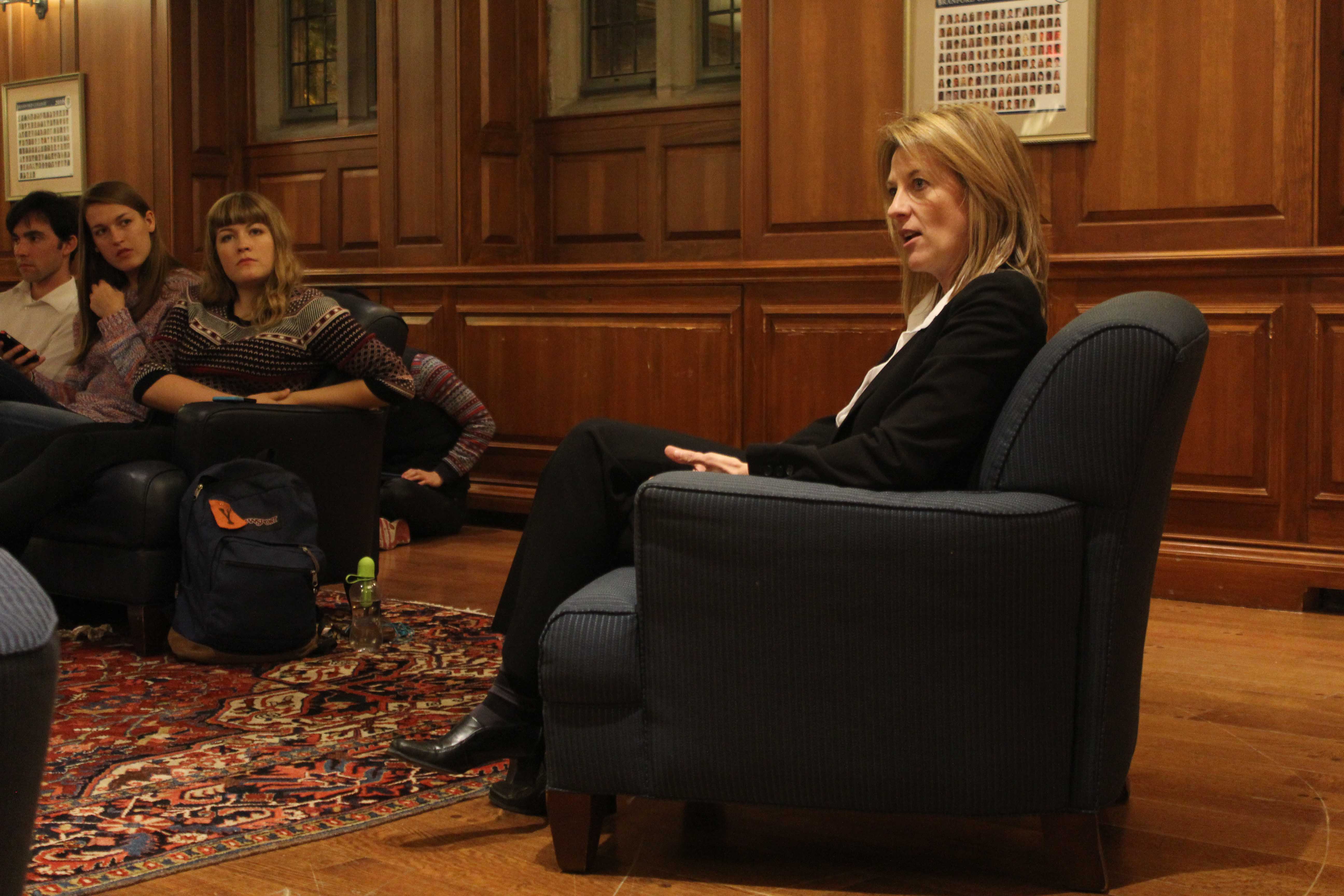
With just under a year left until the presidential election, Yale students got the chance to discuss pressing national economic questions with a top adviser to a major presidential candidate.
Stephanie Kelton, an advisor to Bernie Sanders, outlined the motivations and details behind the Democratic presidential candidate’s chief economic policies and also highlighted the broader economic challenges facing the United States at a discussion Monday. Kelton, who also serves as the chief economist for the Democrats on the Senate Budget Committee, joined the Yale College Democrats and a group of roughly 40 students in the Branford Common Room.
Kelton underscored that Sanders’ chief initiatives — which include raising the minimum wage to $15, implementing shorter work weeks and breaking up the big banks — are aimed at creating a groundswell of support that can sustain a “political revolution.”
“In terms of explaining his ideas in a really clear and compelling way, I think there’s nobody better,” Kelton said in an interview with the News. “And I think the demographic that he is dealing best with is young people.”
She added that one of the more complex economic issues Sanders has championed is financial sector reform. He is dedicated to reforming systemically dangerous institutions that can “bring down the entire national economy,” she said.
Sanders’ main economic policies were just some of many topics Kelton and attendees touched on throughout the talk. Kelton also took time to discuss her perspectives on the field of economics at large and potential challenges for the country going forward, drawing on her experience as an economics professor at the University of Missouri-Kansas City.
Kelton, who called herself “very nonconventional” in her economic orientation, criticized what she sees as deficiencies in the way economics is currently taught in universities — including in economics textbooks, which she said are “written for a world that no longer exists.” Conventional wisdom in economics revolves around the flawed assumption that the world economy still operates under a gold standard, she said.
In addition, she said, economics has become increasingly inaccessible to those who do not specialize in the discipline.
“People can’t read the [American Economic Review] anymore, because it is all stats and economics and agent-based modeling,” she said. “There [often] aren’t people anymore … there are just agents.”
Kelton also took time to reflect on the major economic challenges facing the United States. The discussion focused on the $18 trillion debt the U.S. faces and its impact on the discord between Republicans and Democrats on the topic of infrastructure. Kelton said that while Democrats and Republicans used to be able to agree on the issue, the debt has impeded progress, leading the American Society of Civil Engineers to give the country a D+ grade for its infrastructure.
“Everyone understood, yet today we can’t do infrastructure, because no one can figure out how to pay for it,” Kelton said.
Attendees interviewed after the talk expressed differing opinions about what they had expected to hear from the talk. Sarah Merchant ’17 said Kelton provided valuable insights on current fiscal policies and economic strategies. But Sang Ik Han ’16, an economics major, said he was hoping to hear more about the mechanics of economic policy, but he felt that Kelton focused instead on a dialogue that was more accessible to a general audience.
Yale College Democrats President Tyler Blackmon ’16, a staff columnist for the News, moderated the talk, and said the Dems had been very interested in bringing her to Yale.
“She was a really powerful advocate for [Sanders] here today,” Blackmon said. “I think she gave really great insight on why he’s doing things as well as how this works on a mechanical level.”
The Dems will host Gov. Dannel Malloy on Nov. 30.







